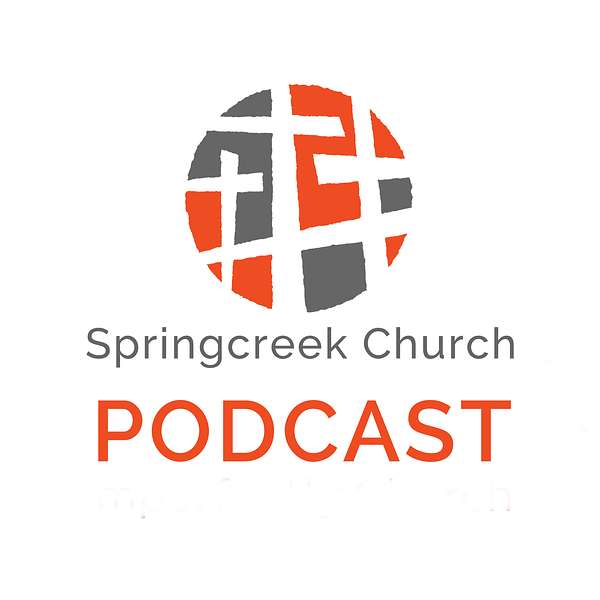
Springcreek Church - Garland, TX Podcast
Springcreek desires to be a gospel people, proclaiming and living a gospel message in a gospel famished world. We do that in community, following Jesus. Growing is our passion. Connecting is our purpose. Serving is our privilege.
Springcreek Church - Garland, TX Podcast
Faith | Building Faith through Trials: Unshakeable Faith - Part 4
BUILDING FAITH THROUGH TRIALS
Unshakeable Faith – Part 4
Springcreek Church | Senior Pastor Keith Stewart
May 5, 2024
#god #realspringcreekchurch #unshakeablefaith #faith #bible #trials #difficulties #adversity
https://www.springcreekchurch.org/
Few things are less welcome in our lives than trials, difficulties, and pain. Yet it’s these very things that often leave us with some of the greatest gifts - not the least of which is a stronger faith. Still, this is not what happens with everybody who experiences adversity. For some, trials will produce bitterness, misery, and hopelessness. How do you ensure that you’re a part of the former group and not the latter?
DISCUSSION QUESTIONS
1. Take a moment and review the chart called the Progression of Harmful Emotions. The process that ends in defeat almost always begins with disappointment. As disappointment festers it moves us to a place of discouragement. Unchecked, discouragement will twist itself into disillusionment. As disillusionment overwhelms you, it will eventually corkscrew down into depression. Then, ultimately, we end up defeated. Have you ever found yourself in this downward spiral? What, if anything, did you do to arrest those deepening negative feelings? What would you say to someone or what might you do to support someone experiencing this?
2. Dr. Jerome Frank at Johns Hopkins talks about what it means to live in an "assumptive world." He says all of us make assumptions about life, about God, about ourselves, about others. But when our assumptions don’t square with reality, we become confused, angry, and disillusioned. Have you ever labored under a faulty assumption of life? What was it? How did it affect you? How has your understanding of life, relationships, and problems changed?
3. Pastor Keith pointed out how much of the book of Job actually details the faulty assumptions of Job’s friends. At least one of the intended purposes is to examine how we approach others when they’re hurting, facing setbacks, or are going through major financial, relational, emotional or spiritual challenges. Have you ever been on the receiving end of advice from someone who didn’t know what they were talking about? Tried to make you think you had done something terrible as an explanation for your difficulties? Or just judged you without knowing all the facts? What effect did that have on you? What did you do or say in response? In retrospect, what do you wish you had said or done? Have you ever been guilty of treating others in a similar way?
4. Take some time to discuss the following finding by UW Health…
"Research has found that up to 70 percent of people experience positive psychological growth from difficult times, such as a deeper sense of self & purpose, a greater appreciation for life & loved ones, & an increased capacity for altruism, empathy, & desire to act for the greater good.” – UW Health (April 7, 2020)
Have you seen this in your own life? In the life of others? Have you also seen circumstances where adversity produced something negative & resulted in a more permanent negative mindset? What do you think separates those who see positive results from difficult times versus those who experience negative results?
5. George McDonald said, “No words can express how much the world owes to sorrow.” There are plenty of examples of this. Most of the Psalms were written in the midst of difficult situations. Most of the Epistles of the New Testament were written in prisons. Most of the greatest thoughts of the greatest thinkers of all time had to pass through the fire. John Bunyon wrote Pilgrim’s Progress from jail. Florence Nightingale, too ill to move from her bed, reorganized the hospitals of England. Can